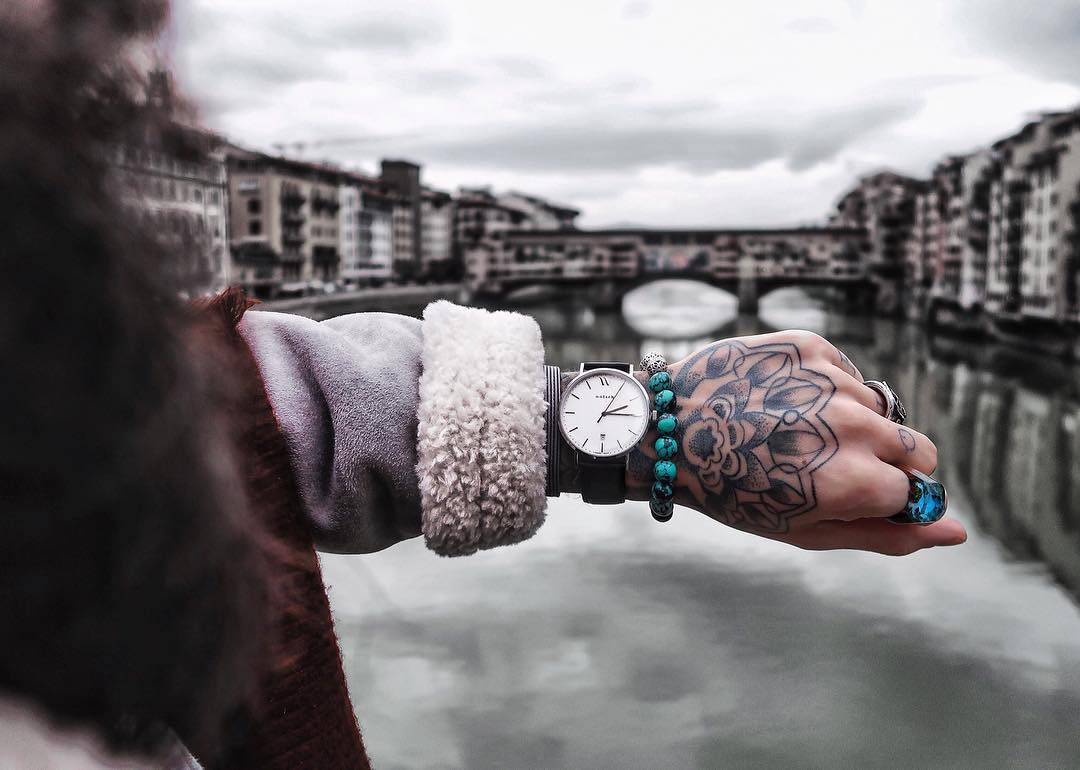At a dinner party recently, I asked my friends for recommendations for my next vacation. I’ve always been a fan of luxury travel. I work hard every day, so it’s important to be able to kick back and enjoy myself during my time off. Normally my vacations include yacht parties, beach resorts, and private jets. When I’d noticed I hadn’t taken time off to travel recently, I started brainstorming destinations for my next trip. But I’d already been to resorts Ibiza, Mazatlán, and Hawaii plenty of times. I was in the mood for something new, which is why I asked my friends for new ideas.
My friend Mark, an editor in chief of a popular travel magazine, piped up.
“What do you even mean by a ‘luxury destination’, though? Expensive traveling’s so overrated, especially now. It’s just a matter of time before it’s in the past.” This piqued my interest, so I asked him to tell me more. The advice he ended up giving me completely changed how I thought about my next upcoming vacation. I wanted to share it with you all here in hopes it will have an impact on you too.

THE TRADITIONAL IDEA OF A LUXURY TRIP
I didn’t need Mark to explain the idea of conventional luxury travel to me – luxury travel is what I’ve always been about. When I go on vacation, I look for the best adults-only, all-inclusive resorts for the most comfortable stay possible and the most amenities. I want my rooms to have the most high-end luxury travel accessories and romantic fireplaces to provide the ultimate luxury escapes. You can often find me on a luxury golf resort, relaxing on white-sand beaches at an exclusive resort, or on a cruise.
“When you think of a luxury trip from the perspective of the travel industry, three really good examples are luxury safaris, Northern Lights tours, and luxury cruises,” Mark said. I’d been on a lot of luxury cruises, so this piqued my interest.
He described luxurious safari trips where people spend $15,000 USD for an all-inclusive experience of Cape Town and Kruger National Park in South Africa. These trips give a nature experience, but while also pulling out all the stops in terms of comfort: private games, business class air travel, and five-star accommodations the entire time. Sounded pretty good to me. I mentally tucked away the idea to look into later.
Then he described luxury tours to see the Northern Lights in Norway. Those who can afford it spend up to $80,000 for a once-in-a-lifetime experience. They travel by helicopters through the countryside or drive luxury-appointed Jeeps through the tundra to see the beautiful Aurora Borealis. When they’re not out in nature, they’re staying in luxury lodges and camps with private chefs. This was definitely off the beaten path for me, but if other people were willing to spend so much for the experience, I wondered if it might be worth it. Again, I mentally added a Northern Lights tour to my list.
But I got really excited when he mentioned a luxury cruise trip for almost $200,000 per person that his travel magazine recently printed an article about.
“They set sail from San Francisco and spend 101 nights out at sea. They wind around Alaska, Asia, Australia, and the South Pacific and make stops all along the way. Everyone gets a 1,345-square-foot suite, and there’s a butler service included.”
A little out of my price range (not to mention there’s no way I could be away from work for that long), but I still liked the idea of sticking with a luxurious cruise. It’s one of my favorite vacations for a reason, I thought. Maybe I should do that again. I know it’s nice and relaxing.
“Sure, some people want to spend a ton of money on these kinds of trips. What they really want is to spend a lot of money for an exclusive, comfortable, first-class experience without missing out on any of the comforts they have at home.” Mark seemed blasé about this, but I didn’t see the problem. All of that sounded great. But he kept talking.

WHY MONEY-DRIVEN TRIPS ARE OVERRATED
“I don’t see the problem,” I told Mark. “If people like spending a lot of money on their vacations, isn’t that theirs right?”
“I mean, sure. That’s not the problem.” He waved a hand at me and plunged into an explanation. And that’s when my mind started to change, and I started to wonder if I should think differently about planning my vacation.
The way he saw it, spending a lot on unique vacations in fun places to go was fine. But cost shouldn’t be the driving factor when planning a trip.
“High cost doesn’t mean you’ll have the best experience,” he said. “Think about planning a trip to Italy, versus Malaysia. You can spend $3,650 for a single night at a 5-star hotel in Sardinia, Italy. Private pool, comfortable beds, champagne, the works. But compare that to going to Cenang Beach in Malaysia. Same beautiful setting, same luxurious accommodations. But you only pay $470.
“Even for a taxi fare, it’s the same. In Italy, riding a taxi just one kilometer can cost as much as $9. In Malaysia, it’s only $2. Is that taxi ride any better? Probably not.”

Then he talked about a concept I hadn’t heard before: “over-tourism.” Over-tourism happens when too many people visit the same place. Once a place has reached its limit, the quality of experience drops significantly and you don’t have as valuable a trip as you expect.
“But people keep going to those places and spending top dollar for the same hotels, even though it’s not as good as it used to be. Because the destination’s location is so good, it’s more important than reality.
“And besides,” Mark said, still talking through a sip of wine. He clearly cared about this a lot. “A lot of the time, the people paying top dollar for these trips don’t have any compelling reason for the experiences they’re having. They’re not going to Hawaii for a specific reason; they’re just following the trends.
“Take people who go to Michelin-starred restaurants, for example. Is the food amazing? Sure. But when I talk to the owners of those restaurants for the magazine, they say half their regulars don’t even consider themselves to be foodies. They’re just going because it’s the thing to do. Why? What’s the point?”

CHANGES IN THE CONCEPT OF LUXURY TRAVEL
“So what’s a better way to travel, in your opinion? Just go somewhere less popular?” I asked.
That was part of it. But he also said people are increasingly looking for more unique travel experiences, finding secret escapes of their own.
“People already see all the typical destinations all over social media. That’s not appealing anymore. Now, they’re looking for exciting, unexplored places. But more importantly, they’re forming their own idea of what luxury means to them. A luxurious trip for one person could be a total nightmare for someone else.”
LUXURY vs. VALUE
More and more, people are forming their own personal definitions of what “luxury” means to them, and prioritizing experiences over material comforts. Instead of escaping their lives, people are looking to enhance their lives with travel. They want to learn, grow, and transform themselves by surrounding themselves with new experiences.The trend is leading to people planning trips based on personal intentions that can be physical, emotional, or intellectual pursuits. Before, people just planned trips based on media and trends. This is leading to a global shift. Before, only the wealthy minority could enjoy lavish trips. But now that people are defining their own ideas of luxury travel, more people can enjoy trips that are meaningful to them.
At this point, I was in. I knew my normal way of planning trips wouldn’t cut it anymore. But I wasn’t sure where to start.

HOW TO DEFINE YOUR OWN LUXURY
So I asked Mark how to plan a trip that prioritized meaning over luxury.
“Well, is there something you’re interested in about the world? It could be anything.” I had been wanting to know more about what local Chinese food was like. I’d had versions of Chinese food all over the world, but I’d always heard actual Chinese food was completely different.
“Cool, so there are two ways you can go about that,” and he laid out the facts for me.
Option #1: Luxury Food Tour Through China
-
The emphasis is on comfort
-
Only go to preset restaurants on the itinerary, without my personal preferences being taken into account
-
Learn about Chinese food culture from the guide’s point of view
-
Avoid language barriers and struggles navigating the different culture
Option #2: Self-Guided Food Tour Backpacking Through China
-
More independent and based on local regions
-
Attend night markets and local food stands
-
Supplement my experience by reading books, talking to locals, and observing for myself
-
Choose what not to eat or what restaurants to revisit based on my preferences
-
Face language barriers, but work past them by learning some of the language
-
Learn how to navigate local currency and customs
Mark explained that neither is better; it’s a matter of preference.
“So how do I choose which one to do?” I asked.
“You think about your priorities, what you care about more,” he said. “Just be sure to plan carefully instead of throwing money at the trip, whatever you do. That way you’ll know what you’re paying for, you’ll get a trip that matches your expectations, you won’t spend more than you need to, and you’ll have a better time.”
MY RECOMMENDATIONS
These recommendations are based on what I talked to Mark about and the research I did about what experience-based trips I was interested in. There’s a limitless supply of places to go, depending on your priorities.
One of the biggest things I learned was that when you plan a trip, consider what factors are likely to make your trip meaningful to you. Are you interested in exploring a new place’s culture? Do you want to see gorgeous landscapes? Or do you want quiet alone time with yourself? As much as I love a raucous yacht party and blasting rap music, there’s something to be said for a relaxing vacation at the beach with a book.
Cultural Destinations

Paris, France
If you’re looking to take in some arts and culture, you can’t go wrong with Paris. You can visit the Moulin Rouge, the famous dance hub, tour the Louvre to expand your appreciation of fine art and see the Mona Lisa, and stop at historical destinations like the Cathedral de Notre Dame or Les Invalides. And don’t worry, the food is fantastic too.
Agra, India
Visit the Taj Mahal in India, one of the most famous buildings in the world. It’s a UNESCO World Heritage site, so you’ll get to feel connected to the experiences of the rest of humanity while you tour the grounds. While you’re there, consider other cultural sites like The Red Fort, Fatehpur Sikri, and the Baby Taj.
Landscape Destinations
Norway
You don’t have to pay $80,000 per person for a trip to see the Northern Lights. While that sounds great, you can have a meaningful experience without such a bank-breaking price tag. When you’re not finding the Northern Lights, explore glaciers and fjords. Then run back to your hotel for a relaxing night in.
South Africa
Just like for the Northern Lights, you can enjoy South Africa’s scenery and wildlife without spending tens of thousands of dollars. South Africa has over 21 national parks and miles of coastline. Explore on a safari, then enjoy the beach when you’re done. It’s the best of both worlds.

VOLUNTOURISM
If you’ve never heard of voluntourism, it’s traveling abroad to do charity work. It’s a way to make the world a better place while also enjoying a relaxing, exciting break from your everyday life. There are voluntourism trips all over the world, so wherever you want to go, you can find one. It’s the perfect combination of a meaningful trip and an enjoyable experience. Just be sure to look into the organization to make sure you’re actually doing good.
FINAL THOUGHTS
Based on my conversation with Mark and my own research, it’s clear that people still want first-class facilities, exclusivity, and high comfort when they travel. But now I see that it shouldn’t just be about that. Money isn’t the only factor that makes a trip meaningful. Planning based on the experience you want to have, and the value of that experience, is more valuable than money will ever be.
“Luxury is about unique experiences which can’t be easily replicated elsewhere. It’s less about facilities and amenities, more about authenticity of experience.”
–Chris Warren-Gash, Co-Founder of Triptease



